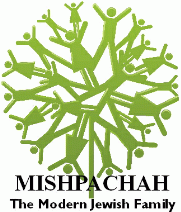
One of the many blessings of modernity is the proliferation of new Jewish rituals that mark and celebrate a variety of events in our lives. While many ritual practices of today harken back to earlier times, even to antiquity, we constantly seek to infuse them with new meaning – either through innovative practice or even the creation of new ritual objects.
Today we have celebratory naming ceremonies for baby girls; the Kos Miryam has become part of the Passover seder; and healing services are common in synagogues. Jewish feminism has been a catalyst for the creation of new rituals for women, marking time and events in their lives – rosh chodesh groups, women’s seders, Vashti’s banquets, and the expansion of the mikveh to commemorate milestones such as the onset and conclusion of menstruation, divorce, widowhood, or the beginning and/or conclusion of chemotherapy.
Vanessa Ochs, professor of religion and author of Inventing Jewish Ritual, suggests that this dynamism is fundamental to religious life. Jews always have created new rituals, but they are rooted in tradition, to an idea, a text, a value – perhaps kibbud av v’eim (reverence/respect for parents), or hiddur mitzvah (enhancement of a practice). The process of introducing new ritual is ongoing, the new becomes the old. Ochs suggests: “ What is utterly novel today may be the ‘traditional’ Judaism of tomorrow.”
Our families are, and can be, the primary venue for the introduction of new rituals. It can be as simple as “Pick Your Own Birthday Dinner” (apparently a very common practice) to the use of Great Grandma Sylvia’s candy dish for charoset, a home-made haggadah, or the family’s designation of the third night of Chanukkah as “Tzedakah night” (when gifts or money is collected for others.)
In this unit we offer a variety of ways to look at the creation of new rituals which include:
As you read through this material, talk with family members about how you can enhance your holidays, life-cycle events and family memories. The price is well worth the cost of the ticket!
3080 Broadway, Suite K900, New York, NY 10027 | Phone: 405-870-1260 | info@wlcj.org
Copyright © 2026 Women’s League for Conservative Judaism. All rights reserved. | Terms of Use | Privacy Policy | Website by Addicott Web